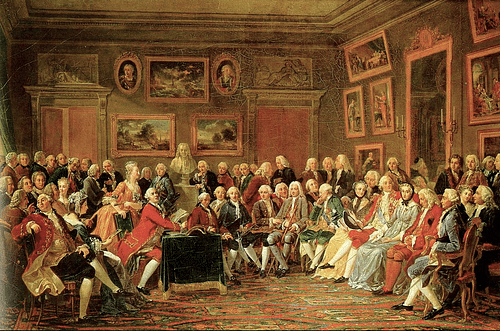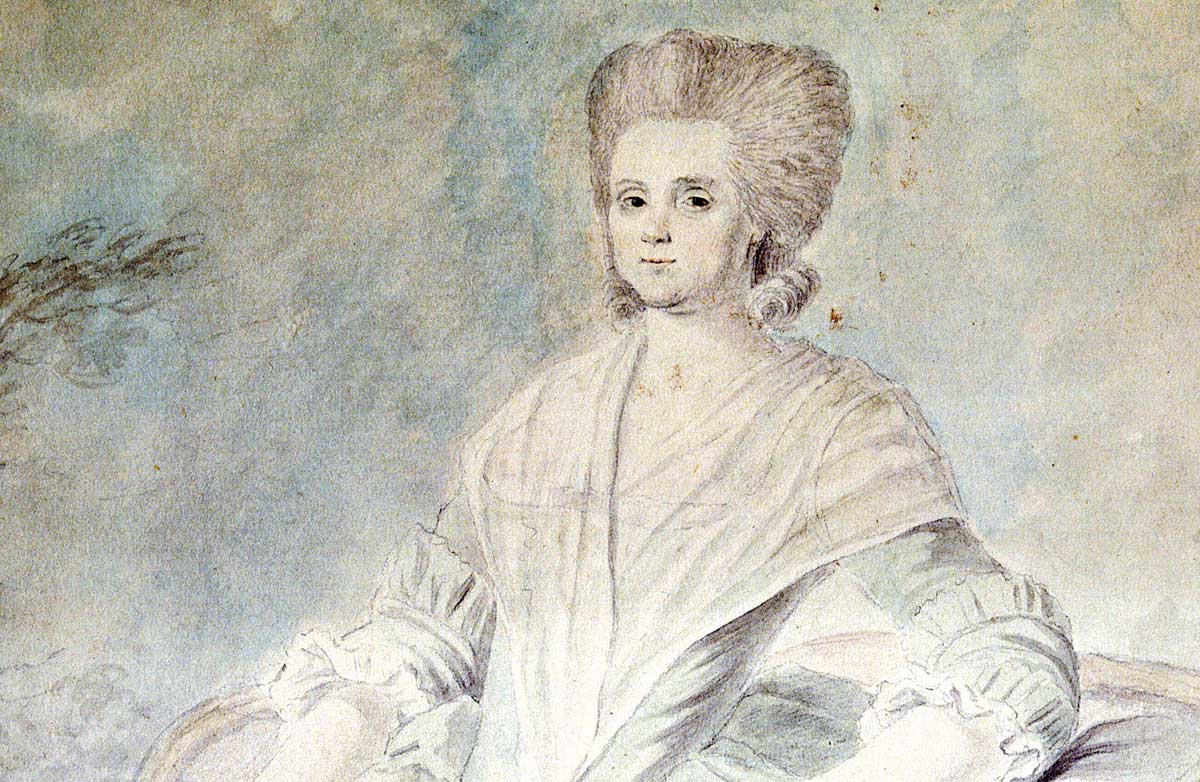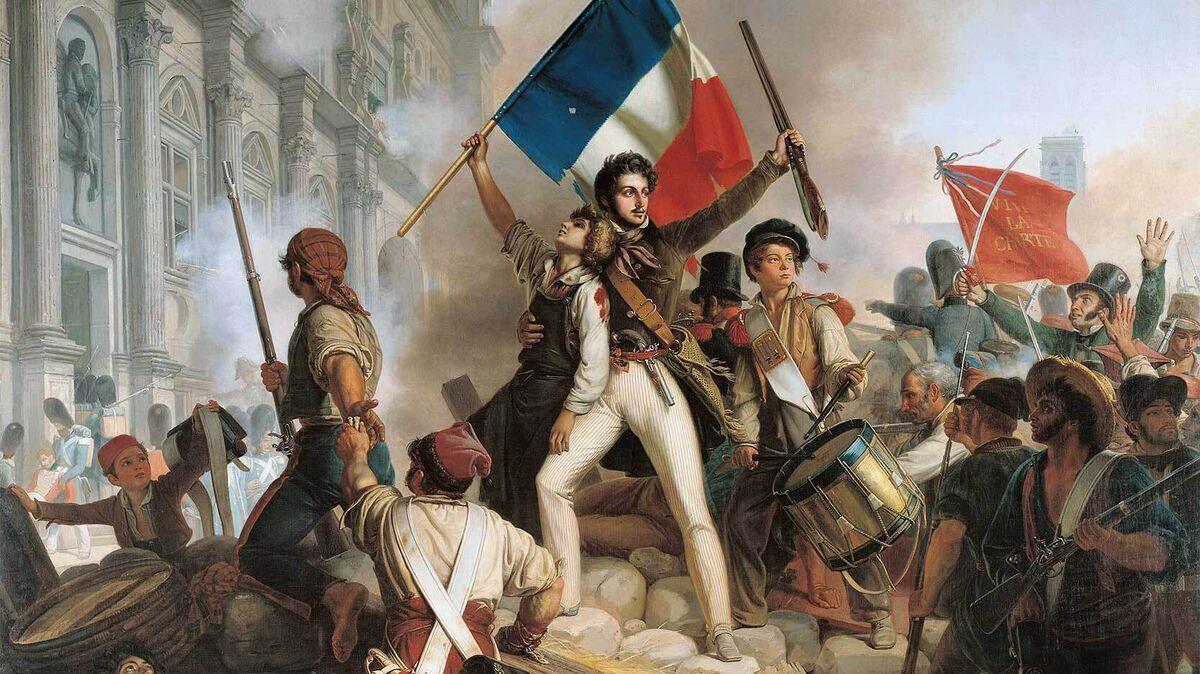At the onset of the French Revolution, women primarily inhabited the private realm, their roles largely defined by familial responsibilities and domestic chores, while men operated in the public sphere. Yet, the revolutionary cries for equality and liberty quickly resonated with women across various societal strata, igniting a desire among them to express their political views and address their grievances. Women from the working class notably took to the streets, driven by everyday struggles such as the high cost of bread.
- Blogs
- French Revolution
- Womens Influence In French Revolution 662f5e34bdccdd0001d2d7c6
Women's Influence in French Revolution: A Legacy of Activism
French Revolution • 29 Apr, 2024 • 8,157 Views • ⭐ 1.0
Written by Shivani Chourasia

The Societies

The French Revolution emerged from Enlightenment ideals. Eighteenth-century thinkers like Voltaire and Jean-Jacques Rousseau provoked a reevaluation of the prevailing norms regarding education, social class, and individual rights. These discussions often took place within the sophisticated evening gatherings of Parisian high society, known as salons.
Predating the Revolution, these salons were typically orchestrated not by prominent men but by their elegant wives, who came to be recognized as "salonnières." These women, despite lacking formal rights, frequently matched the intellectual stature of the men in their circles. The salons served as crucial venues for these hostesses to wield considerable, albeit indirect, political influence, extending their impact beyond the confines of their homes.
FRENCH REVOLUTION QUIZ • 10 QUESTIONS • 2 MINS
We've got a French Revolution quiz for you!
TAP TO PLAY

The Role of Women in the French Revolution

From the outset of the French Revolution, women were key contributors, advocating for significant transformations within French society. One of their primary objectives during the Revolution was securing the right to vote and achieving equal pay.
To amplify their demands, women established numerous political organizations and started various publications. Among these, the "Society of Revolutionary" and "Republican Women" were notably prominent. Across France, approximately 60 women's clubs sprang up in various cities, indicating the widespread nature of their activism.
During the early stages of the revolution, the new government enacted several laws that positively affected women's lives. Compulsory education for girls was introduced through state schools. Marriage was redefined as a contract to be freely entered into and recognized under civil law. Divorce became legally accessible to both men and women, enhancing their legal autonomy. Additionally, women gained the opportunity to train for professions, become artists, or manage small businesses.
HISTORY QUIZ • 10 QUESTIONS • 2 MINS
We've got a History quiz for you!
TAP TO PLAY

However, the struggle for voting rights and equal wages persisted. Under the Reign of Terror, the revolutionary government took drastic measures, such as shutting down women's clubs and prohibiting their political engagement. Many women faced arrest, and some were even executed.
The movement for women's voting rights and equal wages continued to evolve over the next two centuries across numerous countries. The fight for suffrage became part of the international suffrage movement in the late 19th and early 20th centuries. It was not until 1946 that French women finally achieved the right to vote.
From the Salons to the Streets

As the French Revolution unfolded, many women seized the turbulent political climate to express their progressive ideas. During this period, women could no longer be sidelined from political activities. They pledged their allegiance, made solemn declarations of their loyalty, and confirmed their political responsibilities as citizens.
One notable figure was Charlotte Corday, who was sympathetic to the Girondist faction and famously assassinated the Jacobin leader Jean-Paul Marat. Throughout the Revolution, other women like Pauline Léon and her Society of Revolutionary Republican Women aligned with the radical Jacobins, organized protests at the National Assembly, and participated in violent uprisings.
Women’s involvement extended beyond mere demonstrations; they began participating actively in political clubs, and calls for women’s rights became increasingly vocal. In July 1790, the intellectual aristocrat Marie-Jean Caritat, known as the Marquis de Condorcet, advocated for full political rights for women in a widely-read newspaper article.
Feminist Agitation

The Women’s March on Versailles is one example of feminist militant activism during the French Revolution. Despite being largely excluded from the expanding rights of citizens, as highlighted by the ambiguous stance of the 1789 Declaration of the Rights of Man and the Citizen, activists like Pauline Léon and Théroigne de Méricourt campaigned vigorously for complete citizenship rights for women. However, in 1791, women were formally denied the political freedoms associated with "active citizenship."
On March 6, 1792, Pauline Léon presented a petition signed by 319 women to the National Assembly, seeking permission to form a militia to defend Paris against potential military threats. Her request was denied. Later in the year, Théroigne de Méricourt advocated for the creation of “armies of amazons” to protect the revolution.
On June 20, 1792, numerous armed women marched through the halls of the Legislative Assembly, into the Tuileries Gardens, and through the king’s residence. The most radical feminist activism was exhibited by the Society of Revolutionary Republican Women, cofounded by Léon and Claire Lacombe on May 10, 1793. The Society campaigned for a mandate in 1793, requiring all women to wear the tricolour rosette as a sign of their loyalty to the Republic.
After the Convention passed a crucial decree in September 1793, the Revolutionary Republican Women demanded its strict enforcement. However, leaders of the Jacobin Club dismissed them as dangerous radicals.
By October 30, 1793, organized women were definitively excluded from the French Revolution. Many of these revolutionary women were later executed for "conspiring against the unity of the Republic."
The Life of a Revolutionary Woman – Olympe de Gouges (1748-1793)

During the French Revolution, several women writers emerged, using their pens as tools of influence and resistance, providing unique perspectives on the social and political upheavals of their time. Among these, Olympe de Gouges and Madame de Staël stand out for their contributions and boldness in expressing feminist ideas and critiques of the Revolution.
A poignant and forceful statement for women’s political rights was articulated by Marie Gouze, who wrote under the pseudonym Olympe de Gouges. Olympe vehemently opposed slavery and, in September 1791, published the "Declaration of the Rights of Woman," modelled on the "Declaration of the Rights of Man and Citizen." Through this declaration, she highlighted the exclusion of women from the rights it promised. Although she failed to garner widespread support, her work rendered her infamous. Ultimately, she was executed by the government for her activism and ideas.
Olympe de Gouges, born Marie Gouze in 1748, was a playwright and political activist who fiercely advocated for women's rights. Coming from a modest background in Montauban, she moved to Paris where she immersed herself in the intellectual and social circles of the city. In 1791, she authored the seminal "Declaration of the Rights of Woman and the Female Citizen," which mirrored the Declaration of the Rights of Man and Citizen, challenging the exclusion of women from political rights. Her writings emphasized that women should have equal rights in all areas, including the ability to speak in public forums, a radical idea at the time. Despite her advocacy, she was executed in 1793, becoming a martyr for future feminist movements.
Madame de Staël: Intellectual Salon Host and Critic of the Revolution

Madame de Staël, the daughter of Jacques Necker, a prominent Swiss banker and statesman, was another influential figure. Born in 1766, she was a prolific writer and intellectual whose salons became a gathering place for philosophers and politicians. Through her works such as "On Literature Considered in Its Relationships to Social Institutions" (1800) and later "Considerations on the Principal Events of the French Revolution" (1818), she provided critical commentary on the Revolution's impact on society and the importance of personal liberty. Her writings and outspoken opinions led to her exile by Napoleon, who saw her political influence as a threat. These women, through their writings and despite facing severe opposition, significantly contributed to the intellectual ferment of the Revolution. Their legacy underscores the power of words in shaping political discourse and advocating for fundamental human rights.
Conclusion
Women in the French Revolution shattered societal constraints, from revolutionary activism to intellectual discourse. Figures like Olympe de Gouges and Madame de Staël challenged norms, advocating for women's rights and critical commentary. Despite facing opposition, their voices reverberate through history, highlighting the power of women in shaping political discourse and advancing human rights. Their legacy persists as a testament to resilience and the enduring quest for equality.
Test your knowledge of History! Visit: https://newspoint.play.quizzop.com/history-quiz/category
Rate this article
Other articles you may like
WWII Origins: Key Causes & Global Impact
History • 23 Jan, 2024 • 39,753 Views

Europe's 7 Most Significant War Memorials
History • 4 Sept, 2023 • 67,260 Views

6 Traditional Dances from Africa and Where to Witness Them
History • 24 Aug, 2023 • 42,311 Views

5 Iconic Museums of Modern Art in the World
History • 14 Aug, 2023 • 68,391 Views

Top 5 Cities with Impressive Streets in the World
History • 14 Aug, 2023 • 66,155 Views





